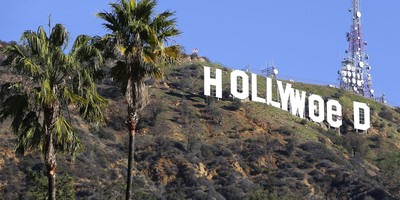The prospect that President-elect Barack Obama may keep the Bush tax cuts until 2011 has some clinging to hope he will postpone his liberal ideas for the economy’s sake.
There’s little chance of that when it comes to global warming, however, an issue on which Obama puts his ideology first and the nation’s economic growth second.
In a recent video statement to the Governors’ Global Climate Summit, Obama displayed unwavering support for strong federal action to reduce greenhouse gas emissions.
Sounding like he was auditioning for a role in Al Gore’s next film, Obama said, “The science is beyond dispute and the facts are clear. Sea levels are rising. Coastlines are shrinking. We’ve seen record drought, spreading famine, and storms that are growing stronger with each passing hurricane season.”
Obama went on to promote his cap-and-trade policy, which, he said, “will establish strong annual targets that set us on a course to reduce emissions to their 1990 levels by 2020 and reduce them an additional 80 percent by 2050.”
Through regulation, Obama hopes to transform our economy while “saving the planet.” He says he will accomplish his ambitious goals by investing in “solar power, wind power and next-generation biofuels. We will tap nuclear power, while making sure it’s safe. And we will develop clean coal technologies.”
Obama is creating his own version of FDR’s New Deal and LBJ’s Great Society. In the middle of an economic crisis, Obama’s “Grand Experiment” is to build a federal bureaucracy to transform our economy by forcing it to run on costly unproven energy sources instead of established fossil fuels.
Recommended
Under Obama’s cap-and-trade scheme, the government would set limits on industrial emissions of greenhouse gases such as carbon dioxide. Companies that emit more than their allowance must buy “carbon credits” from businesses whose emissions are under their allotment. Over time, the government ratchets down the allowance for all industry, which will increase the cost of emissions.
Fossil fuels currently supply 85 percent of our energy needs, while non-greenhouse gas-emitting sources (such as nuclear, wind, solar and others) deliver only 15 percent. Since alternative energy supply is limited, emission reductions targets will be met by decreasing demand for fossil fuels by raising prices.
In short, Obama’s “Grand Experiment” will raise energy prices, slow economic growth and increase unemployment.
The coal industry will be the biggest casualty. Obama’s commitment to “develop clean coal” is questionable. During the presidential campaign he said, "[I]f somebody wants to build a coal-powered plant, they can; it's just that it will bankrupt them because they're going to be charged a huge sum for all that greenhouse gas that's being emitted."
Obama’s attitude about coal is consistent with that of the Democratic leadership and its special interest allies.
Senate Majority Leader Harry Reid (D-NV) has said, “That is coal makes us sick, oil makes us sick; it's global warming. It's ruining our country, it’s ruining our world. We’ve got to stop using fossil fuel.”
Vice President-elect Joe Biden has said, “We're not supporting clean coal” and “no coal plants here in America.”
Rep. Henry Waxman (D-CA), the new chairman of the House Energy and Commerce Committee, is a long-time coal industry foe. Activist groups like the Rainforest Action Network demand a ban on coal use because, “‘clean coal’ doesn't address the massive social and environmental costs of mining, transporting and refining coal.”
It’s clear that coal, clean or not, is not acceptable.
Since coal is used to generate 50 percent of our electricity, cap-and-trade will push utility bills higher.
The Congressional Budget Office found that investors and workers in the energy sector would suffer losses due to the decline in energy-intensive industries. Not surprisingly, since Obama’s victory, investors have punished coal stocks.
The CBO also says the cost of cap-and-trade will be “borne by consumers, who would face persistently higher prices for products like electricity and gasoline.” The CBO adds that these added costs would preferentially harm low-income households.
The cost to consumers in not unknown to Obama, who has acknowledged, "Under my plan of a cap-and-trade system, electricity rates would necessarily skyrocket..."
Despite overwhelming momentum for a ban on coal, some companies are in denial about the left’s war against coal. Recently, CEO Jim Rogers of Duke Energy – a coal dependent utility – participated in a press conference to voice his support of cap-and-trade legislation.
Rogers hopes a Congress run by Reid and Waxman and a President who promises to bankrupt his company will instead show mercy because he supported their cap-and-trade “solution.” Rogers’ fleeting effort is reminiscent of Neville Chamberlin’s failed appeasement strategy.
Obama’s steadfast support for cap-and-trade is increasingly putting him outside the mainstream, even the European mainstream Obama is said to greatly admire.
The European Union’s cap-and-trade experiment has been a resounding failure. At next week’s United Nations conference on climate change in Poland, nations will seriously discuss reducing commitments to limit greenhouse gas emissions because the price tag is too expensive, especially during a global economic crisis.
Will the economic crisis make Obama think twice about cap-and-trade? There’s no sign yet that it will.

























Join the conversation as a VIP Member